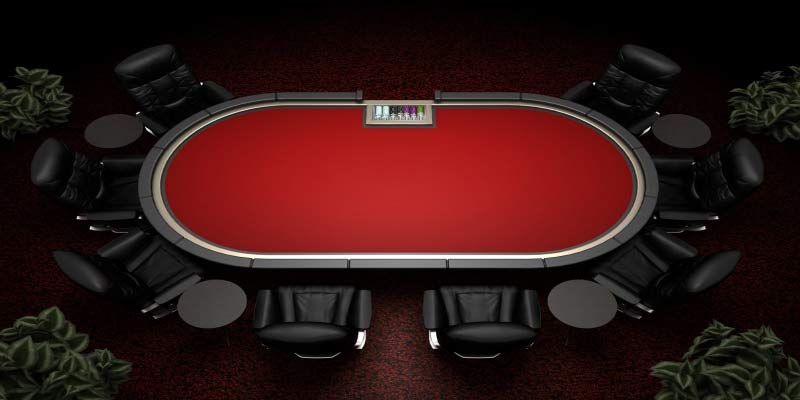Poker tables are more than just furniture—they’re the stage for epic battles of wit, strategy, and nerve. Whether you’re a casual player hosting a home game or dreaming of dominating a casino felt, understanding poker tables and their role in the game is your first step to greatness. This guide dives into the world of poker tables with expert tips, practical advice, and a playful nod to the thrill that makes every hand an adventure. Grab your chips, and let’s take a seat.
Why Poker Tables Are the Heart of the Game
Poker tables set the tone for every game, blending function with atmosphere. They’re designed to keep the action smooth, from the soft felt that makes cards glide to the chip trays that organize your arsenal. A good poker table isn’t just about practicality—it’s about immersion. The moment you sit down, you’re not just playing a game; you’re stepping into a world of bluffing, betting, and bold moves. Whether it’s a Texas Hold’em showdown or a lively Omaha session, the table is where stories are made, from epic comebacks to crushing folds.
The magic of poker tables lies in their ability to bring people together. Friends banter over a kitchen-table game, strangers become rivals in a casino, and online tables connect players across continents. But to make the most of your poker experience, you need to know what makes a table tick—its design, its setting, and how it shapes the game. This guide will help you navigate the poker table landscape, whether you’re playing at home, in a casino, or online.
Getting Started with Poker Tables: The Essentials
A poker table is more than a surface—it’s a carefully crafted tool. Standard tables are oval or round, seating 6 to 10 players, with a felt surface for easy card and chip handling. The felt often features markings for betting areas, and many tables include padded rails for comfort during long sessions. Home tables might be foldable for easy storage, while casino tables are built for durability and style, often with built-in chip trays and cup holders.
If you’re setting up a home game, choose a table that fits your space and budget. A foldable tabletop converter is great for beginners, turning any dining table into a poker arena. For a more authentic vibe, invest in a dedicated table with sturdy legs and quality felt. Online, the “table” is virtual, but the platform matters—opt for licensed poker sites regulated by authorities like the Malta Gaming Authority or UK Gambling Commission. Look for user-friendly interfaces, secure payments, and active player pools. Start with low-stakes games to get comfortable, and always set a budget to keep the experience fun.
Strategies for Dominating at Poker Tables
Poker is a game of skill, and the table is your battlefield. Success starts with observation—watch your opponents’ betting patterns, body language (in person), or timing (online). At a physical poker table, a player’s chip-stacking style or nervous tic can reveal their confidence. Online, a quick bet might signal strength, while hesitation could hint at weakness. Sharpen your ability to read these cues to stay one step ahead.
Table position is another key factor. Sitting “late” in the betting order (closer to the dealer button) gives you more information about others’ actions, letting you make smarter decisions. Use this to bluff effectively or steal pots when others show weakness. Specializing in one poker variant, like Texas Hold’em or Seven-Card Stud, helps you master its nuances. Study basic strategies—know when to fold weak hands, raise with strong ones, or call to see the next card cheaply.
Bankroll management is critical at poker tables. Set aside a dedicated poker fund, and never risk more than a small percentage (1-2%) on a single game. This protects you from bad runs and keeps you in the game longer. Avoid “tilt”—playing recklessly after a loss. Stay calm, stick to your strategy, and treat each hand as a fresh opportunity. Practice through free online games or low-stakes home matches to build confidence without breaking the bank.
Trust and Expertise at Poker Tables
Trust is the foundation of a great poker experience. For physical games, choose reputable casinos or home games with fair players. In casinos, look for licensed venues with professional dealers and clear house rules. Online, prioritize platforms with strong security, transparent rake structures, and certifications from auditors like eCOGRA, ensuring random card dealing. Avoid shady sites promising unrealistic bonuses—they often hide unfair terms.
Building expertise means immersing yourself in poker’s craft. Study classic books like Doyle Brunson’s “Super/System” or watch high-stakes tournaments to learn from pros. Join online forums or local poker clubs to swap strategies and hear war stories. Focus on one or two games to deepen your skills, and track your results to spot patterns in your play. The more you learn, the more you’ll command the table, turning close calls into winning hands.
The Social and Cultural Pulse of Poker Tables
Poker tables are a microcosm of human connection. Imagine the laughter as a friend bluffs too hard and gets called, or the hushed awe when a player flips over a royal flush. In casinos, tables buzz with characters—veterans with weathered chip stacks, tourists chasing a thrill, and pros hiding their skill behind sunglasses. Online, chat boxes and avatars create a virtual camaraderie, linking players from Tokyo to Texas. Poker tables weave tales of triumph, heartbreak, and the occasional bad beat that becomes legend.
Balance keeps the vibe alive. Poker’s intensity can pull you in, so set time and money limits to stay grounded. Play for the love of the game, not just the pot. At home, keep things light with snacks and music; online, engage in chat to build rapport. The table is a stage, but the real win is the shared experience—win or lose, you’re part of something bigger.
Final Thoughts: Claim Your Spot at the Poker Table
Poker tables are where strategy meets swagger, and every hand is a chance to shine. Whether you’re bluffing your way to a home-game victory or chasing a tournament dream, the key is to play smart, stay disciplined, and soak up the thrill. Choose trusted settings, hone your skills, and embrace the camaraderie that makes poker timeless. So, shuffle the deck, take your seat, and let the cards fall. Here’s to bold bets, epic reads, and countless nights at the poker table.



